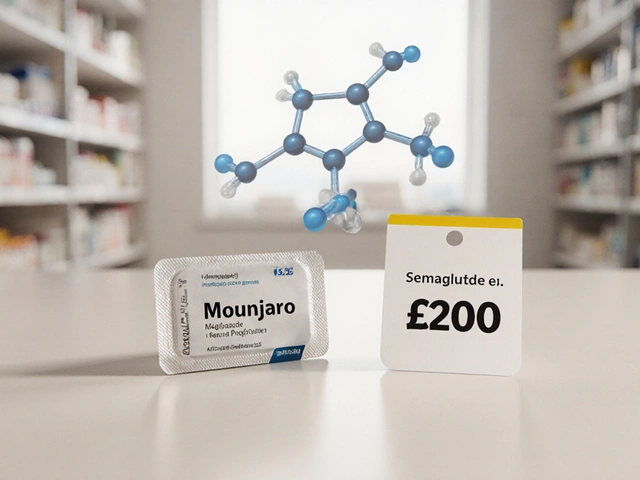Health checkups are essential components of preventive healthcare. They involve a series of medical tests that can help detect potential health issues early on. This article explores what is typically covered in health checkups and the significance they hold in maintaining one's overall well-being. Readers will also learn about interesting facts and tips related to preparing for these checkups and understanding the results.
Read MoreMedical Examination: What Happens and How to Nail It
Walking into a doctor’s office for a medical examination can feel like stepping into the unknown. You might wonder what the doctor will ask, which tests are needed, and how to make the most of the visit. The good news is that a medical exam is just a snapshot of your health, and with a little prep you can walk out confident and informed.
Why Regular Examinations Matter
Think of your body as a car. Even if everything seems to run fine, you still need routine checks to catch hidden wear and tear. A medical examination spots early signs of disease, updates vaccinations, and gives you a chance to discuss lifestyle changes before problems snowball. In India, many insurance plans cover annual check‑ups, making it an easy win for your wallet and wellbeing.
What to Expect During the Exam
Most doctors follow a simple flow: history, physical, and targeted tests. First, they’ll ask about any symptoms, family history, and habits like smoking or exercise. This is your moment to be honest – the more they know, the better the advice.
Next comes the physical check‑up. You’ll sit on the exam table while the doctor checks your pulse, blood pressure, weight, and listens to your heart and lungs. They’ll also look at your eyes, ears, throat, abdomen, and joints. It’s quick, usually under ten minutes, but it gives a big picture of how your organ systems are doing.Finally, the doctor may order lab work: blood sugar, cholesterol, liver and kidney panels, or a urine test. Some clinics bundle these into a “health package” that you can do on the same day. Bring a list of any current medications so the lab can interpret results accurately.
How to Prepare Like a Pro
Preparation isn’t complicated, but a few steps save time and improve accuracy:
- Fast if needed: For blood sugar or lipid panels, doctors often ask you to skip food for 8‑12 hours. Drink water, though – dehydration can affect results.
- Bring records: If you’ve had recent scans, allergy tests, or vaccination cards, pack them. It avoids duplicate tests.
- List your meds: Include over‑the‑counter pills, herbal supplements, and any vitamins.
- Write down questions: Jot down anything you’ve noticed – joint pain, fatigue, sleep issues – so you don’t forget it during the visit.
Wearing comfortable clothing with easy‑to‑remove layers helps the doctor examine you quickly.
After the Exam: Next Steps
When the doctor finishes, they’ll go over the findings. If everything looks good, you’ll get a clean bill of health and a plan for the next check‑up (usually a year away). If something needs attention – high blood pressure, borderline cholesterol, or a suspicious symptom – they’ll suggest follow‑up tests or lifestyle tweaks.
Make sure you leave with a written summary or an email copy. This helps you track changes over time and share information with other specialists if needed.
Common Questions Answered
Do I need a medical exam if I feel fine? Yes. Many conditions, like hypertension or early‑stage diabetes, show no symptoms until they cause damage.
How often should I get a full check‑up? For most adults, once a year is a safe rule. If you have risk factors (family history, high stress, sedentary lifestyle), talk to your doctor about more frequent visits.
Are medical exams expensive? Costs vary, but many public hospitals and large private chains offer affordable packages. Check if your employer or insurer covers routine exams – it often does.
In the end, a medical examination is a simple, powerful tool. It’s not about catching a crisis; it’s about staying ahead of one. Schedule your next appointment, follow the prep tips, and treat the exam as a regular part of your health routine. Your future self will thank you.





